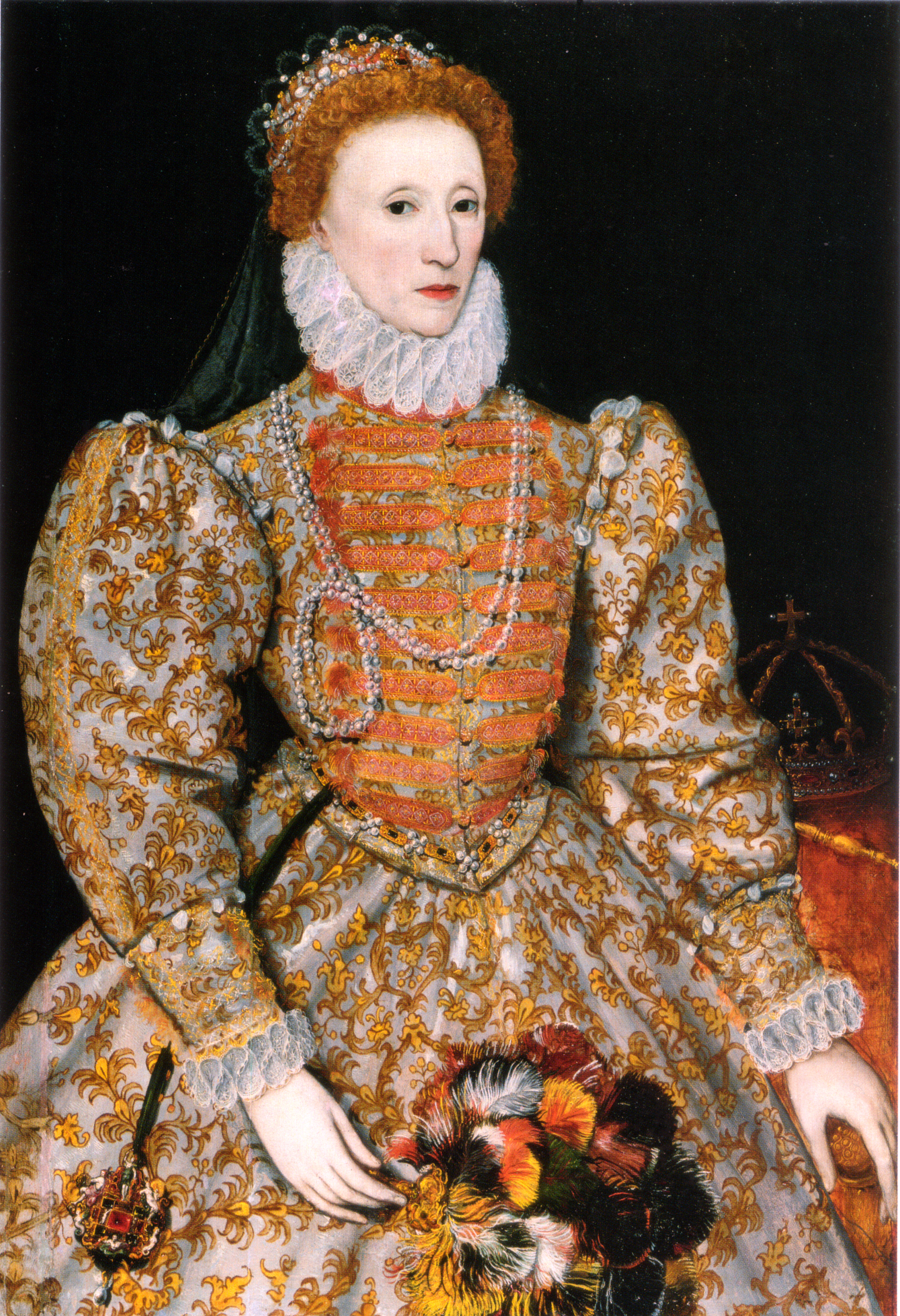Elżbieta I Tudor słynne cytaty
I will make you shorter by a head. (ang.)
Elżbieta I do Marii Stuart, 1587.
z mowy do delegacji obu izb Parlamentu w sprawie wyboru małżonka, 6 lutego 1559.
Źródło: Elżbieta Wielka, biografia autorstwa Stanisława Grzybowskiego, Wrocław 1984
„Kiedy przyjdzie co do czego, uczynię, jak Bóg mi wskaże.”
kiedy książę Somerset (Edward Seymour) spytał ją, czy gdyby rada się zgodziła, wyszłaby za mąż za Thomasa Seymoura, to Elżbieta (ok. 15 lat) właśnie tak odpowiedziała.
Źródło: David Starkey, Elżbieta I. Walka o tron
„Wszystkie moje posiadłości za [jeszcze] jedną chwilę”
życia
All my possessions for a moment of time. (ang.)
ostatnie słowa, 24 marca 1603.
Źródło: Władysław Kopaliński, Słownik wyrazów obcych i zwrotów obcojęzycznych, Warszawa 1989, s. 26.
Elżbieta I Tudor cytaty
„Władcy nie mogą lubić swych dzieci; tych, którzy winni po nich nastąpić.”
Elżbieta do ambasadora Marii Stuart, 1561.
Źródło: Elżbieta Wielka, biografia autorstwa Stanisława Grzybowskiego, Wrocław 1984
podsumowanie swych rządów złożone w 1601.
Źródło: Dariusz Skorupa, Elżbieta I Wielka w: Tudorowie i Stuartowie (tom 2. serii Dynastie Europy), op. cit., s. 54.
kwitując działania militarne Anglików, którzy musieli angażować znaczne siły na Irlandii, gdzie w 1594 wybuchła wojna dziewięcioletnia
Źródło: dr Dariusz Skorupa, Elżbieta I Wielka w: Tudorowie i Stuartowie (tom 2. serii Dynastie Europy), Biblioteka Gazety Wyborczej, 2010, ISBN 97883268008525, s. 54.
„Właśnie odszedł najbardziej zabawny i najmniej inteligentny człowiek.”
po egzekucji Tomasza Seymoura.
„Anglicy są już mną zmęczeni, tak jak ja jestem zmęczona nimi.”
wypowiadane do dam dworu w końcowym okresie swego życia
Źródło: dr Dariusz Skorupa, Elżbieta I Wielka w: Tudorowie i Stuartowie (tom 2. serii Dynastie Europy), Biblioteka Gazety Wyborczej, 2010, ISBN 97883268008525, s. 55.
fragment wygłoszonej w parlamencie jednej z ostatnich mów Elżbiety I.
Źródło: Tudorowie i Stuartowie (tom 2. serii Dynastie Europy), op. cit., s. 68.
przemówienie do angielskich żołnierzy w 1587 podczas wojny morskiej z Hiszpanią.
Źródło: Dariusz Skorupa, Elżbieta I Wielka w: Tudorowie i Stuartowie (tom 2. serii Dynastie Europy), op. cit., s. 53–54.
„Zbyt wielu doradców to niezgoda i zamieszanie, zamiast dobrej porady.”
do rady koronnej na pierwszym posiedzeniu zwołanym przez nią w Hatfield.
z mowy Elżbiety przesłanej Johnowi Haringtonowi.
Źródło: Stanisław Grzybowski, Elżbieta Wielka, Wrocław 1984
Elżbieta I Tudor: Cytaty po angielsku
Speech to the Troops at Tilbury (1588)
Kontekst: I know I have the body but of a weak and feeble woman; but I have the heart and stomach of a king, and of a king of England too, and think foul scorn that Parma or Spain, or any prince of Europe, should dare to invade the borders of my realm.
Response to Parliament (October 1566).
“God may forgive you, but I never can.”
To the Countess of Nottingham, as quoted in The History of England Under the House of Tudor (1759) by David Hume, Vol. II, Ch. 7.
“[I] would rather be a beggar and single than a queen and married.”
Statement to the envoy of Ulrich, Duke of Württemberg while discussing a proposal of marriage to the duke's son, Christoph. (26 January 1563), quoted by J. Horace Round in "A Visit to Queen Elizabeth," http://books.google.com/books?id=iP0CAAAAIAAJ&q=%22would+rather+be+a+beggar+and+single+than+a+queen+and+married%22&pg=PA629#v=onepage The Nineteenth Century magazine (October 1896)
The Golden Speech (1601)
To Robert Cecil when he said, in her final illness (March 1603), that she must go to bed.
The Golden Speech (1601)
Speech to a joint delegation of the House of Lords and the House of Commons (5 November 1566), quoted in Leah Marcus, Janel Mueller and Mary Rose (eds.), Elizabeth I: Collected Works (The University of Chicago Press, 2002), p. 95.
“This is the Lord's doing, and it is marvellous in our eyes.”
Her reaction when she was told she was Queen (17 November 1558).
The Golden Speech (1601)
Response to Parliament (October 1566).
Speech to Parliament (10 April 1593), quoted in Leah Marcus, Janel Mueller and Mary Rose (eds.), Elizabeth I: Collected Works (The University of Chicago Press, 2002), p. 332.
Speech to the Troops at Tilbury (1588)
Letter to Edward Seymour, Lord Protector (28 January 1549), quoted in Leah Marcus, Janel Mueller and Mary Rose (eds.), Elizabeth I: Collected Works (The University of Chicago Press, 2002), p. 24.
“I would not open windows into men's souls.”
Oral tradition, possibly originating in a letter drafted for her by Francis Bacon. http://books.google.co.uk/books?id=nkJad0EYVxIC&pg=PA104#v=onepage&q&f=false http://books.google.co,/books?id=0yA-MQLwOtEC&pg=PA104#v=onepage&q&f=false
Letter to Amias Paulet (August 1586), the gaoler of Mary, Queen of Scots, quoted in Leah Marcus, Janel Mueller and Mary Rose (eds.), Elizabeth I: Collected Works (The University of Chicago Press, 2002), p. 284.
“Anger makes dull men witty, but it keeps them poor.”
To Sir Edward Dyer, as quoted in Apophthegms (1625) by Francis Bacon
“Much suspected by me,
Nothing proved can be,
Quoth Elizabeth prisoner.”
Written with a diamond on her window at Woodstock (1555), published in Acts and Monuments (1563) by John Foxe.
“If thy heart fails thee, climb not at all.”
Rhyming response written on a windowpane beneath Sir Walter Raleigh's writing: "Fain would I climb, yet fear I to fall." As quoted in The History of the Worthies of England (1662) by Thomas Fuller
“Those who touch the sceptres of princes deserve no pity.”
Remarks to the French ambassador on Charles de Gontaut, duc de Biron's rebellion against Henry IV of France (c. July 1602), quoted in J. E. Neale, Queen Elizabeth [1934] (1942), p. 364
